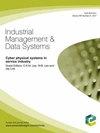Examining the role of narratives in civic crowdfunding: linguistic style and message substance
IF 4.7
3区 工程技术
Q1 COMPUTER SCIENCE, INTERDISCIPLINARY APPLICATIONS
引用次数: 28
Abstract
Purpose The purpose of this paper is to explore how linguistic style and message substance influence persuasion in civic crowdfunding marketplaces in which written narrative pitch become a vital communication to attract private contributions to public goods and services. Drawing on the elaboration likelihood model (ELM), the authors operationalize the linguistic style of the narrative pitch as language power and message substance as issue-relevant argument quality. In this paper, the authors examine how characteristics of both style and message are related to the outcome of civic crowdfunded projects. Design/methodology/approach The data on civic crowdfunding projects were retrieved from Spacehive, the platform that dedicated mainly to civic projects ranging from community programs, social-oriented enterprises, to infrastructure or facility development. Each of the narrative samples is analyzed using a computerized text analysis package called the Linguistic Inquiry and Word Count to extract the features of the linguistic style and message substance in the narratives. The logistic regression models are estimated to assess the impact of both linguistic style and message substance on crowdfunding decisions. Findings The results show that funding outcomes can be improved with psychological language dimensions (i.e. positive affective and perceptual language). However, extensive use of social language does not help project creators to increase their chance of funding performance; but instead, such language reduces the likelihood of project success. Additionally, message substance or issue-relevant information such as money and risk language influences funding outcome. Originality/value Very few empirical studies investigated the differential effects of language style and message substance on funding performance of crowdfunding campaigns. The authors draw upon the dual process of persuasion as a theoretical base to identify a comprehensive set of linguistic style and message substance and to examine the role of such features in an emerging civic crowdfunding market. This study advances the application of the dual process in ELM by identifying and examining distinct persuasive cues originating from linguistics styles and message contents.考察叙事在公民众筹中的作用:语言风格和信息实质
目的本文的目的是探讨语言风格和信息实质如何影响公民众筹市场中的说服力,在这个市场中,书面叙事成为吸引私人对公共产品和服务贡献的重要沟通方式。利用阐述可能性模型,作者将叙事音调的语言风格作为语言力量,将信息实质作为问题相关的论点质量。在本文中,作者研究了风格和信息的特征如何与公民众筹项目的结果相关。设计/方法论/方法公民众筹项目的数据来自Spacehive,该平台主要致力于公民项目,从社区项目、社会导向企业到基础设施或设施开发。每个叙事样本都使用一个名为“语言查询和字数统计”的计算机文本分析包进行分析,以提取叙事中的语言风格和信息实质的特征。逻辑回归模型用于评估语言风格和信息实质对众筹决策的影响。研究结果表明,资助结果可以通过心理语言维度(即积极情感和感知语言)来改善。然而,广泛使用社交语言并不能帮助项目创作者增加资助绩效的机会;但是,这样的语言反而降低了项目成功的可能性。此外,信息实质或问题相关信息,如资金和风险语言,会影响融资结果。原创性/价值很少有实证研究调查语言风格和信息内容对众筹活动资金绩效的差异影响。作者以说服的双重过程为理论基础,确定了一套全面的语言风格和信息实质,并考察了这些特征在新兴的公民众筹市场中的作用。本研究通过识别和检验源自语言学风格和信息内容的不同说服线索,推进了双重过程在ELM中的应用。
本文章由计算机程序翻译,如有差异,请以英文原文为准。
求助全文
约1分钟内获得全文
求助全文
来源期刊

Industrial Management & Data Systems
工程技术-工程:工业
CiteScore
9.60
自引率
10.90%
发文量
115
审稿时长
3 months
期刊介绍:
The scope of IMDS cover all aspects of areas that integrates both operations management and information systems research, and topics include but not limited to, are listed below:
Big Data research; Data analytics; E-business; Production planning and scheduling; Logistics and supply chain management; New technology acceptance and diffusion; Marketing of new industrial products and processes; Sustainable supply chain management; Green information systems; IS strategies; Knowledge management; Innovation management; Performance measurement; Social media in businesses
 求助内容:
求助内容: 应助结果提醒方式:
应助结果提醒方式:


